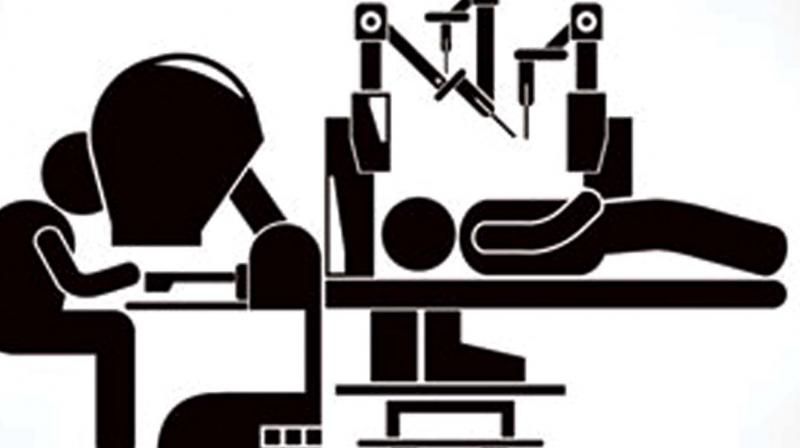Robotic kidney transplant may catch on in some years

Chennai: With India being one of the first few countries to introduce Robotic Assisted Kidney Transplant (RAKT), available in a few centres, especially in Northern India, the question whether it will be the future for India arises among many in the field of transplantation.
“Though it proves to be extremely useful for those suffering with obesity, the fact that it is expensive could serve as a deterrent in transplantations today. However, 10 years from now, when the cost comes down, it would become more of a norm and prove to be more acceptable,” said Dr Sunil Shroff, urologist and transplant surgeon, Madras Medical Mission.
“It is also useful for those who are concerned about their appearance. It is a choice given to patients and some may prefer this option. The robot is used to guide the doctor with better vision and access to the place which has to be operated upon. It is now a very common form in prostrate surgeries and will definitely be the way forward,” he added.
RAKT, which serves as an advantage for operating upon those in whom access is difficult, is being followed in some centres in Manipal, Bengaluru and Kochi as well. “The robot, though in use in Apollo Hospital, Chennai, and Kovai Medical Centre and Hospital, Coimbatore, hasn’t yet been used for Kidney Transplants, but for other surgeries like prostrate and kidney diseases,” said Dr Muruganandham, Senior Consultant and Head of Urology, Gleneagles Global Hospital.
Dr Shroff said that creating awareness on this form of surgery can be done only by the doctors themselves. “The robot would add around Rs 1 lakh to the cost of treatment, which is already very high. However, it is surely going to become cheaper in future when other companies looking to launch the robot will do so. Right now, it is being monopolized by Intuitive Surgical,” said Dr Muruganandham.
Though available in a few private centres in the country, RAKT may take a long time to be adopted by government and mission hospitals. “The cost is pretty high and therefore, it will not benefit the patients coming there. It could also be useful for hospitals, as it will help bring in more money. It may be the future for Asia, but India needs to focus more on better treatment and modalities that are affordable,” said a nephrologist from Vellore.

